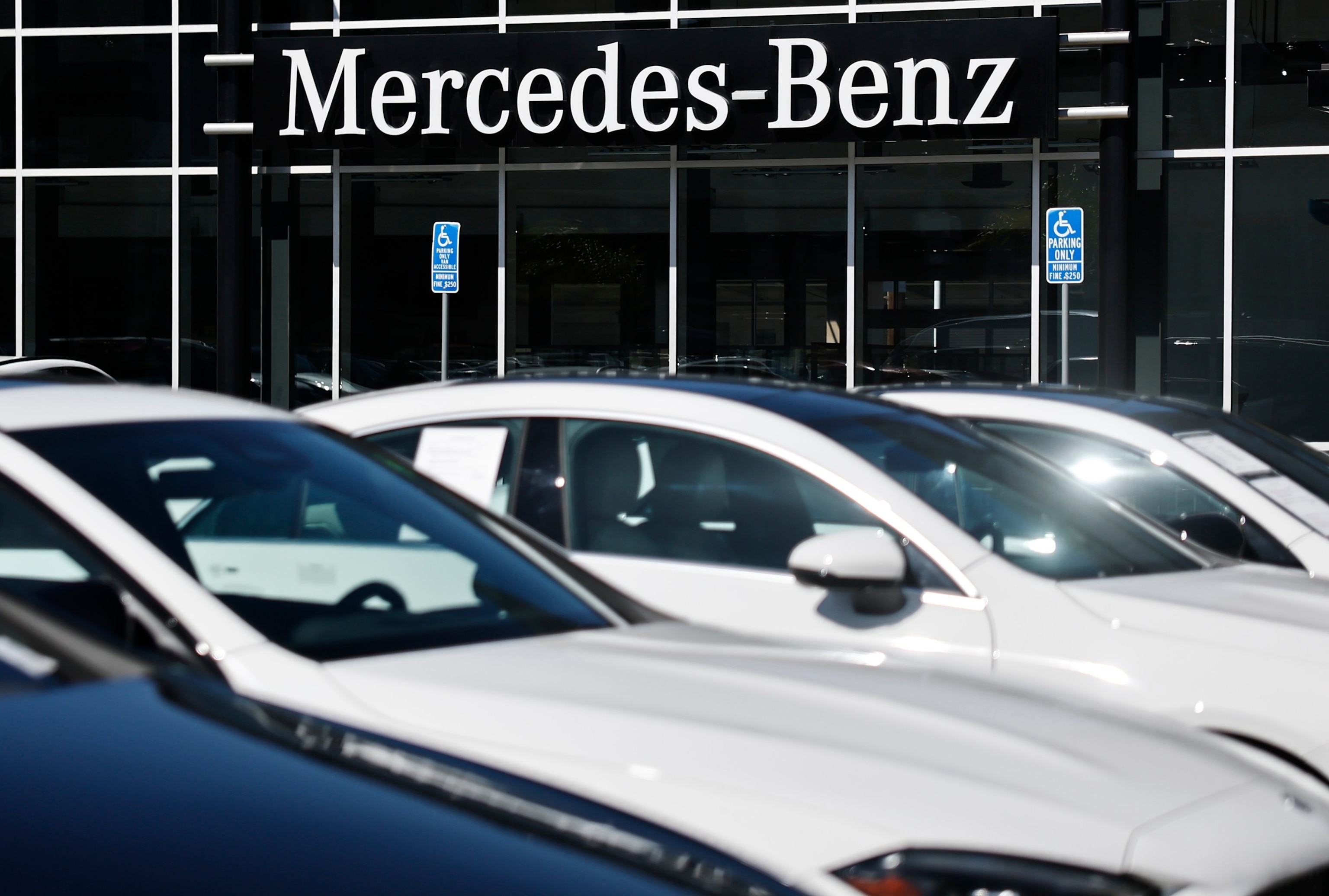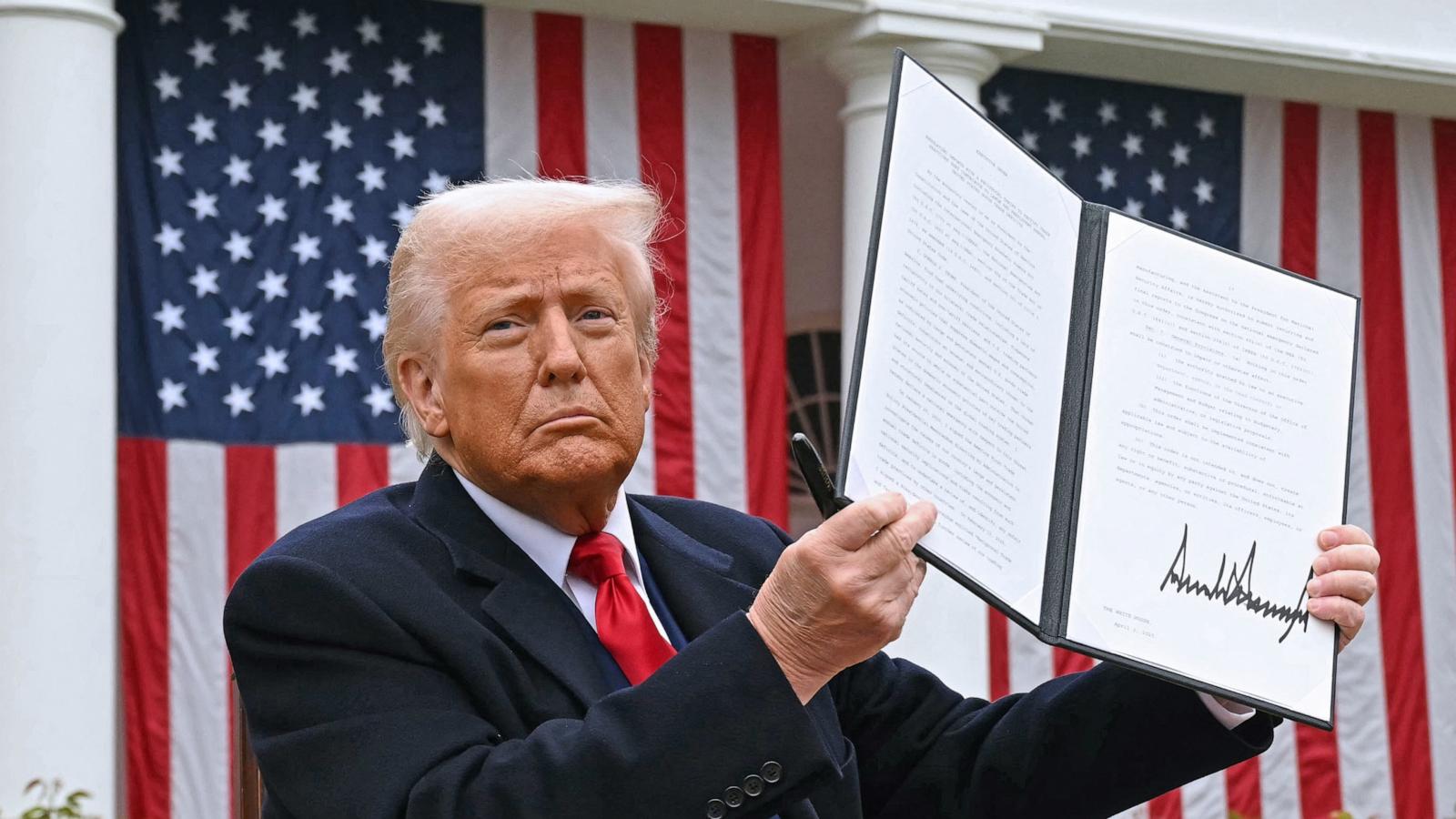Steep tariffs of 25% on vehicles imported into the United States went into effect early Thursday morning, as international leaders reacted to and markets reeled from President Donald Trump’s announcement hours earlier of even more sweeping tariffs set to begin later this week and next week.
The auto tariffs, which apply to imported cars, SUVs, minivans, cargo vans and light trucks, could raise car prices by thousands of dollars, according to experts.

Overall, half of the approximately 16 million vehicles purchased in the U.S. last year were imported, according to the White House.
The White House touted the tariffs as a means of safeguarding U.S. national security and economic strength, saying the U.S. auto industry had been undermined by excessive imports.
Experts say U.S. shoppers will almost certainly see higher prices for foreign cars, as the increased tariffs are passed on to consumers. That sticker shock could also send prices higher for used vehicles.
Tariffs of 25% on key imported auto parts, including engines and electrical components, were set to go into effect later.
The auto tariffs went into effect just hours after Trump unveiled a long-promised wide-ranging tariff plan that included a baseline tax on imports from all trading partners as well as steeper ones on countries that impose levies on U.S. goods.

“My fellow Americans, this is Liberation Day,” Trump said from the White House Rose Garden, claiming his latest action would free the U.S. from dependence on foreign goods.
Under the plan, goods imported from China will be hit with what Trump called “kind reciprocal” tariffs of 34%; goods imported from the European Union will be hit with 20% tariffs.
Overall, the tariffs announced by Trump “approach levels not seen since the ‘Smoot-Hawley Tariff Act of 1930,'” two experts at the Cato Institute, a libertarian think tank, said in an statement, referring to the measure signed into by President Herbert Hoover, which historians say exacerbated the nation’s economic downturn during the Great Depression.
Last month, Trump also slapped a 25% tariff on steel and aluminum imports as well as certain goods from China, Canada and Mexico.
Trump made his announcement Wednesday after the stock market had closed for the day, but stock futures plunged on the news. The Dow Jones Industrial Average fell by 1,100 points or 2.7%. S&P 500 futures lost 3.9% and Nasdaq-100 futures tumbled 4.7%.

International leaders decried Trump’s announcement.
“China urges the United States to immediately cancel its unilateral tariff measures and properly resolve differences with its trading partners through equal dialogue,” a Chinese Ministry of Commerce spokesperson said in a statement, arguing that the tariffs will “endanger global economic development and the stability of the supply chain.”
Trump’s announcement Wednesday slapping 34% tariffs on China comes on top of 20% tariffs he previously announced — bringing the total tax levied against one of the U.S.’s biggest trading partners to 54%.
The European Union said it has a “strong plan to retaliate,” which European Commission President Ursula von der Leyen is set to deliver on Thursday.
In a Facebook post, Italian Prime Minister Giorgia Meloni called the tariffs targeted toward the European Union “wrong.”
She added, “We will do everything we can to work towards an agreement with the United States, with the aim of avoiding a trade war that would inevitably weaken the West in favor of other global players.”
The trade maneuvers have strained relations with Canada and Mexico, two key allies and neighbors. Neither country is included in the list of countries set to be hit with reciprocal tariffs.
Mexico said it will give its response later this week.
ABC News’ Alexandra Hutzler, Leah Sarnoff and Max Zahn contributed to this report
ABC News: Top Stories
Read the full article .


